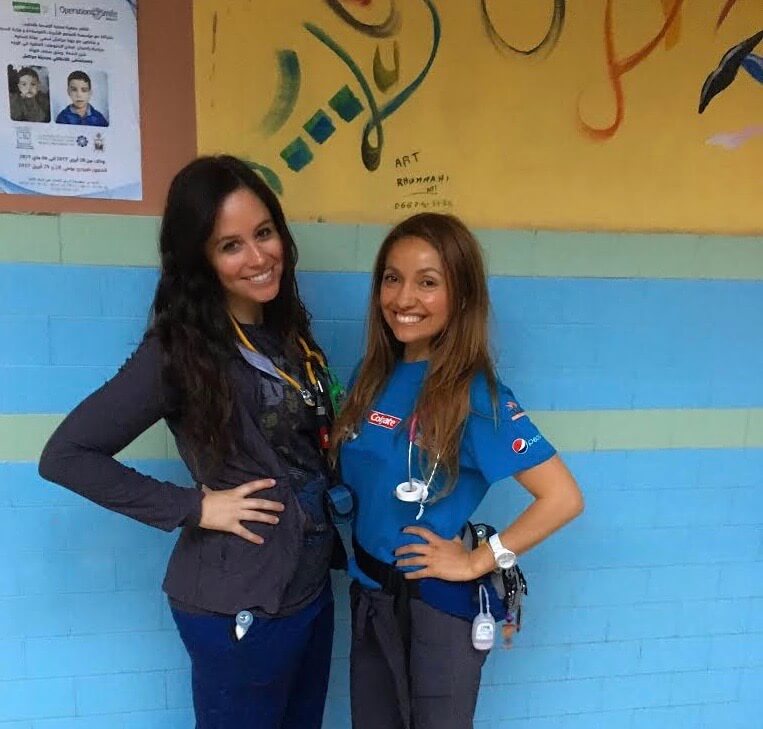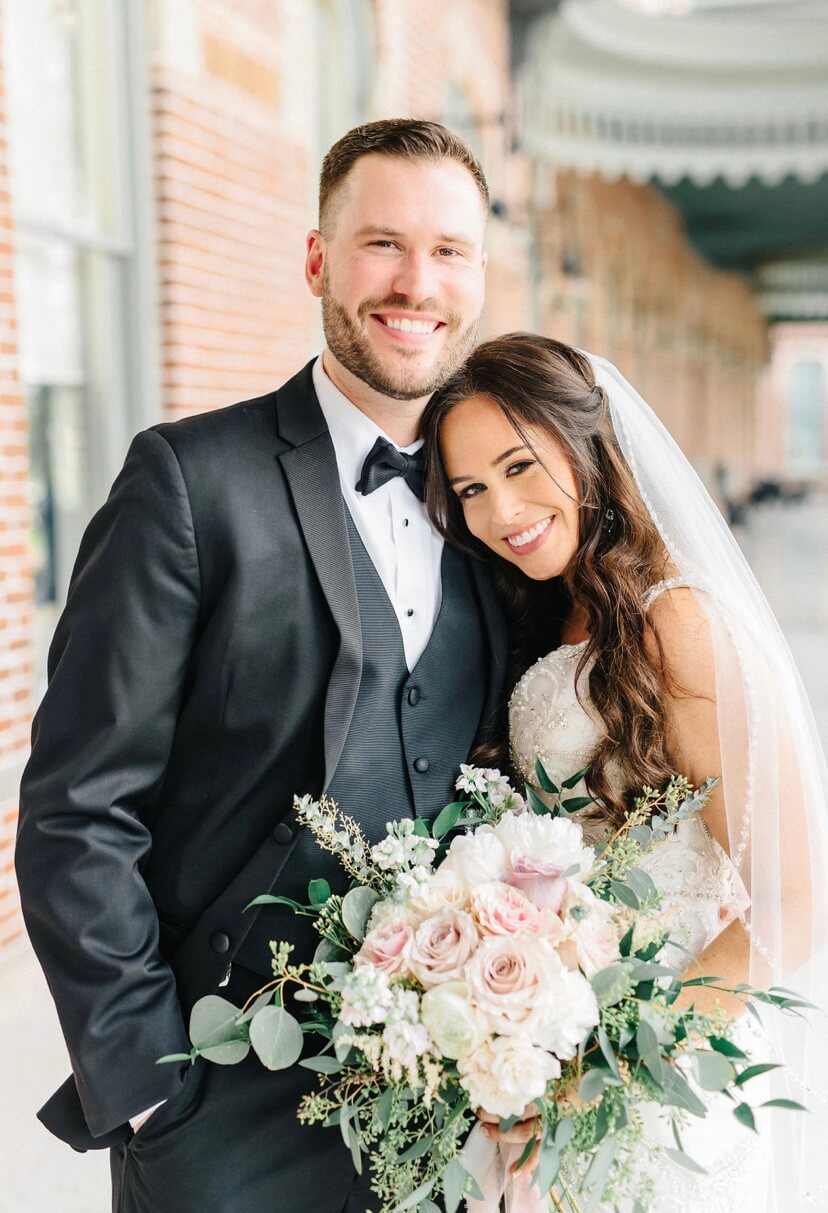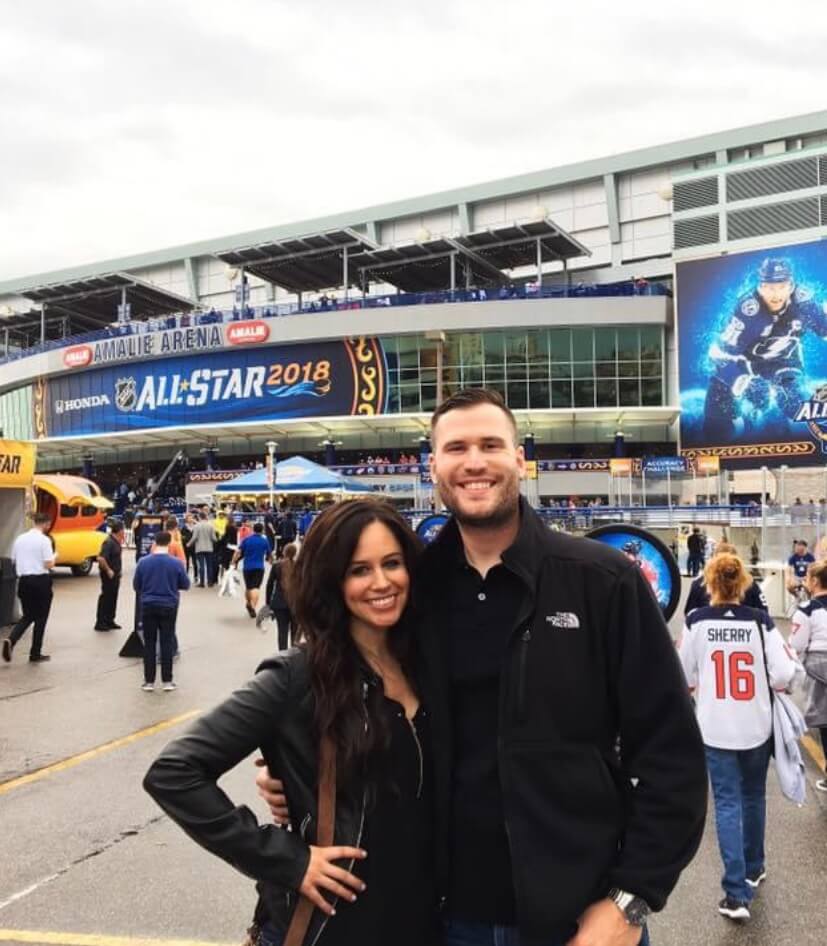Healthcare Heroes: Courtney Bartley… “To all the nurses out there – keep rocking it; you are the best”
 Help Paragon Leadership recognize Healthcare Hero, Courtney Bartley, RN, BSN, along with all other nurses during National Nurses week!
Help Paragon Leadership recognize Healthcare Hero, Courtney Bartley, RN, BSN, along with all other nurses during National Nurses week!
Flexibility, humility, creativity, integrity and trust . . . Healthcare Hero, Courtney Bartley, RN shares why these and other leadership qualities are so critical, especially in such critical times!
 Overview of background
Overview of background
I’m currently a Pediatric Registered Nurse working in a post-anesthesia care unit (PACU) for a children’s hospital in Florida. Prior to working in the PACU, I worked as a Pediatric RN for four years, and as a travel nurse for four years.
How did you arrive at a career in nursing?
When I first went to the University of Florida for college, I was interested in pursuing business management and eventually following in my dad’s footsteps of owning my own business. However, as time went on and I got further into my coursework, I began to feel like business might not be the best career path for me. Around the same time, I began volunteering in the pediatric unit at the hospital on campus, and I was so amazed by the way the nursing staff interacted with and helped ease the fears of the pediatric patients. After a lot of soul-searching, and the guidance of a nursing school advisor who told me about UF’s thirteen-month Accelerated Nursing Program, I decided to pursue a nursing degree, while at the same time completing my business degree. This ended up being a great decision, as I can’t imagine doing anything else.
Is there one position you have had that has provided you with the greatest learnings and/or opportunity to influence others?
When I was in Charge Nurse type roles, these provided me with great opportunities to not only demonstrate my leadership skills, but to learn from others. Often, I would be junior in age (in some cases, with a difference of greater than 20 years), to those I was supervising. I learned quickly that it did not matter the age or experience of others, but rather the importance of treating everyone with respect, listening to everyone’s ideas, especially from those with such great experience, as well as being humble and approachable.
As a travel nurse and constantly transitioning into new environments, what learnings or perspectives did you acquire?
Having spent time working in Denver, CO, Austin, TX, Nashville, TN, San Francisco, CA, San Diego, CA, and New York City, I learned that each time I walked into a new facility it was like starting over again. I used to be a type-A personality, but quickly learned how to become more adaptable and acceptable of other ways of doing things.
What advice do you have for leaders or team members who are either new to a team or environment or are assisting others in this transition?
Being new is hard! It teaches you to be humble. It is important to be realistic and know that it is going to take a few weeks, if not months before you feel comfortable. I found that if you are proactive in reaching out to others, then it makes it easier for others to be receptive to you. Being kind, friendly, having a positive attitude and simply putting a smile on your face can also go a long way.
Working in a stressful environment, what advice do you have for other leaders in helping ease the fears of their employees?
I have learned it is important to meet people where they are at, try to understand their stressors, and respect that their stressors may not be your stressors. It is also important to recognize that certain behaviors may be the result of one’s feeling insecure, fear or uncertainty.
Given the current pandemic and in a state with a high % of cases, how has this changed your view/perspective on your chosen career?
It has taught me important lessons about flexibility and preparedness. A lot of our nurses have cross trained in different units or areas. As an example, some have trained with respiratory therapists, and some have even assisted in unexpected areas such as food service and housekeeping. There are numerous departments working together to keep our hospital afloat. We have gained exposure to many different areas and developed a newfound respect for what other professionals do. We have also learned that it is better to over prepare for the unknown, even if the ultimate outcome is not as devastating as what was expected.
This crisis has also helped us learn how to work together in new and unique ways to get the job done as we adapt to changing conditions. I think sometimes as health care providers we get so fixated on doing things a certain way and find it hard to adjust to other ways of doing them. I have been blessed with the opportunity to work on medical mission trips in Guatemala, Morocco, and Kenya. Such experiences have opened my eyes and taught me to be flexible and creative in the ways we provide care, especially given the absence of certain supplies, modern conveniences and technology. Additionally, this helps you to be thankful for and appreciate what we do have.
What effects has the pandemic had on you personally?
Recently, I was out of work on a self-quarantine due to a potential exposure. I am recently married, and my husband is working remotely as well with the Stay at Home orders. Being that we typically are not home 24-7 with one another, it has been an eye-opening experience. We are learning how to communicate and work through our respective issues and stresses together. This time together has also forced us to confront things that have come up as there is no way to avoid them.
What effects do you believe the pandemic will have on our overall healthcare system and what lessons can we take as learnings for the future?
I think this pandemic has raised a lot of issues that are unfortunately present within our healthcare system, and in our country in general. Hopefully, one of our learnings will be the need to be better prepared in developing contingency plans. For a problem to be corrected, it must first be acknowledged and identified as a problem. As hard as it is for us to admit our weaknesses, both as individuals and as larger organizations, I think we need to reframe them and see them as potential opportunities for improvement for the future.
What leadership behaviors do you think are critical for anyone in your role (or more general – within healthcare)?
Integrity, trust and relatability is key. I have also found that earning respect from others comes from being true to your word and to yourself. When people feel like their leader truly understands and empathizes with what they are going through and the struggles they face, this helps to build a strong rapport.
Good leaders are those who aren’t afraid to do the right thing, even when it’s challenging or goes against the grain. They are direct in their communication and are willing to provide constructive criticism and have necessary but difficult conversations, even though it may be uncomfortable or awkward for them. It’s also important for leaders to approach these conversations in a kind and encouraging way, to correct a behavior while simultaneously supporting the individual and praising their positive attributes and abilities. Conversely, leaders should strive to have humility and express their own shortcomings, staying open to constructive criticism and feedback and recognizing that they can learn just as much from their followers as they can teach them.
Finally, good leaders are those who empower their followers to aspire to a higher standard, and help coach them to get them to where they want to be. Great leaders truly believe in their people and recognize their potential, and are not threatened by others realizing their own greatness. Leaders should inspire you to want to become better, to do more, and help you to realize that you have everything you need inside of you to do that. We truly transform when we are in relationships where we build each other up.
Of the leadership behaviors you have described, which of these are most critical in the times in which we are living, regardless of one’s profession? Please explain.
Again, I would put integrity and relatability at the top of the list. In this Information Age, leaders who are highly esteemed can be easily discredited when their followers discover negative things about their personal behaviors or conduct. People are very quick to judge and criticize a leader whose actions don’t align with what they say, but a leader who remains true to their word and true to themselves will easily earn their respect. Similarly, a leader who is relatable to their followers will command their respect. Typically, a great leader is someone who has “walked the walk” so to speak. He or she has gotten to where they are because they excelled in a previous position, where others who are in a similar position can aspire to be. If people believe that their leader identifies with and is empathetic to their experience, feelings, and challenges, they will be much more likely to respect and trust them.
What message would you like to communicate to college students seeking a profession in nursing or healthcare? What about nurses who are contemplating furthering their education to become an NP?
Nursing provides a unique opportunity to support others through the most difficult of times. Although it can be physically, emotionally, and spiritually draining at times, it is an exceptionally rewarding profession. Typically, nurses work longer 10 or 12 hour shifts, but the benefit of that is that you tend to have more days off during the week which affords you a really great work-life balance.
Another benefit of a nursing degree is that the possibilities within the nursing profession are endless. If you want to change it up completely, you can pursue travel nursing opportunities which allow you to live and work all over the country. You can even travel internationally with medical organizations and see different countries and experience new cultures.
Nursing degrees also provide a perfect path toward pursuing more advanced educational opportunities. Many nurses I’ve worked with have gone on to become nurse practitioners, nurse anesthetists, nurse midwives, and some have even gone on to earn a doctorate in nursing practice (DNP) degree. I absolutely love what I do in my job now, but it’s so refreshing to know that you always have that flexibility and the opportunity to try something new. A nursing career can take you literally anywhere.
If you could develop a hashtag about your career what would it be and why?
 #courtneycares
#courtneycares
Anything else you would like to share?
I’m just truly so proud and humbled to be part of such an amazing profession. To all the nurses out there – keep rocking it, you are the best! Also to all of the other amazing healthcare providers and hospital staff members who are so invaluable to us and our patients – thank you for your service and for everything you do, especially in these difficult times. We couldn’t do what we do without you!